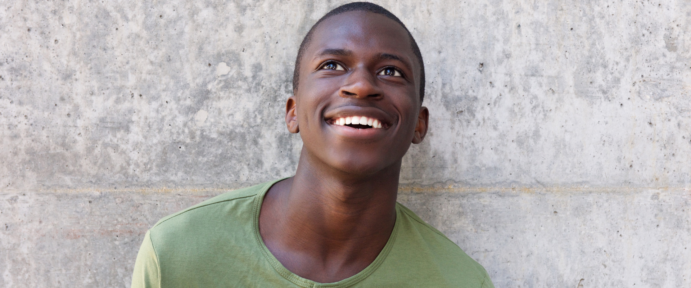World Mental Health Day is a day of awareness that is observed on the 10th of October every year. Mental health is just as important as physical health, yet so often its one of the first things compromised in our day to day life. How many times have we stayed up to the early hours of the night finishing those emails instead of just closing the computer and getting 8 hours of sleep? Or forgoing exercise because we just ‘don’t have the time’. Mental health refers to the health of our brain, which also happens to be one of the most important and complex organs of our body. We believe prevention is better than cure, so we want to help people look after their mental health and prevent more serious mental health problems from developing. If you or someone you know is struggling with their mental health, know that you are not alone and there are places you can go to get help. The South African Depression and Anxiety Group is a great resource to ask for advice. We all live with worries and fears, uncertainties, losses that leave us sad and pressures that make us feel stressed.
A few mental health tips
- It often helps to give our feelings our attention without judging them, without telling ourselves we’re stupid or weak to feel the way we do. It may seem strange and uncomfortable to do this. But practice and patience with ourselves will help.
- Naming what we’re feeling is also likely to help. So, we can say to ourselves: “I’m feeling really irritable today but also sad.” Another helpful step can be to work out what has led to us feeling this way – might it be a disagreement or disappointment that you’ve had? Some women might find that their periods sometimes (or always) affect their moods.
- Many of us have learned to bottle things up inside us and try to ignore painful feelings. It can take a lot of courage to tell someone else how we’re feeling or what we’re finding hard, especially if we don’t usually do that kind of thing. Just talking things through with a person we trust can help and feel like a relief.
- Many of us sometimes use drugs to block out “difficult” feelings such as sadness, fear or shame. No one wants to feel bad; for some people, drugs and/or alcohol offer temporary relief. Unfortunately, they don’t stop the feelings from returning and may make things worse or create other problems, including damage to mental and physical health, relationships, work, or study.
- Money problems can be unavoidable, and we may have no choice about being in debt. If we are struggling financially, including with debt, it can be helpful to talk about it with an expert at a charity that offers free money advice.
- Anyone who has struggled with sleep will know what a difference it makes to our bodies, minds and ability to cope with life. We all have times when we sleep badly, and some of us live in situations that make a good night’s sleep impossible. For many people, sleep is often the first thing that suffers when we struggle with our mental health.
- Our bodies and minds are connected, so looking after ourselves physically also helps us prevent problems with our mental health (it works the other way around, too). Exercise releases “feel good” hormones that reduce feelings of stress and anger. It also helps us feel better about our bodies. It can improve our sleep too. If it involves other people, like being part of a team, a class or a group we see regularly, that can also boost our mental health.
- A balanced diet with lots of vegetables and fruit is essential for good physical and mental health. How we eat is also important. Having meals with other people can help to grow relationships – with family, friends, partners, and colleagues. This is really important in protecting everyone’s mental health and preventing problems. Food can also get mixed up with our feelings. Some people over-eat or under-eat when they are upset.
- Life throws all sorts at us, and during hard times, we may feel hopeless and not have the energy to plan for the future. Things to look forward to, including fun activities, can help us cope with difficult situations. Making plans for things we enjoy can increase our sense of hope, which is important for our mental health.
Trying new things can sometimes feel uncomfortable, but they usually get easier the more we practise them. One thing to remember: none of us is perfect. We all have our limits. What’s good enough for you is great.


